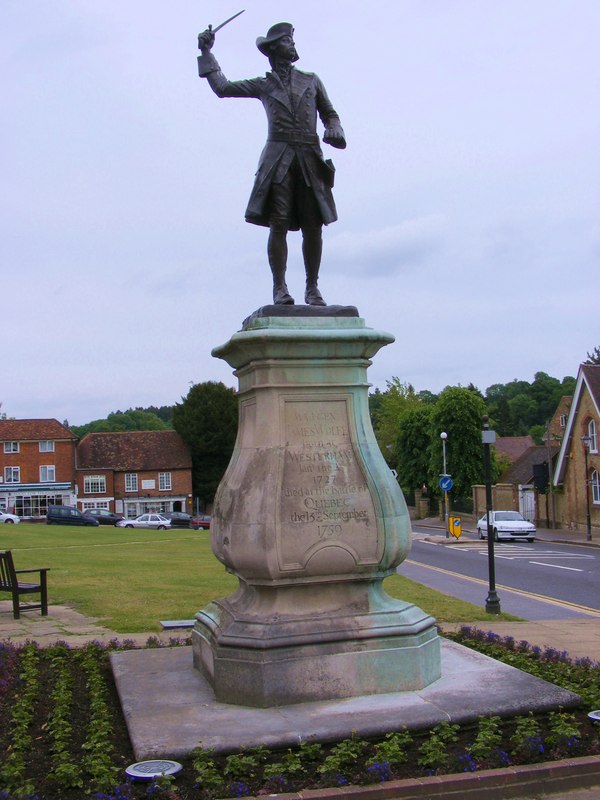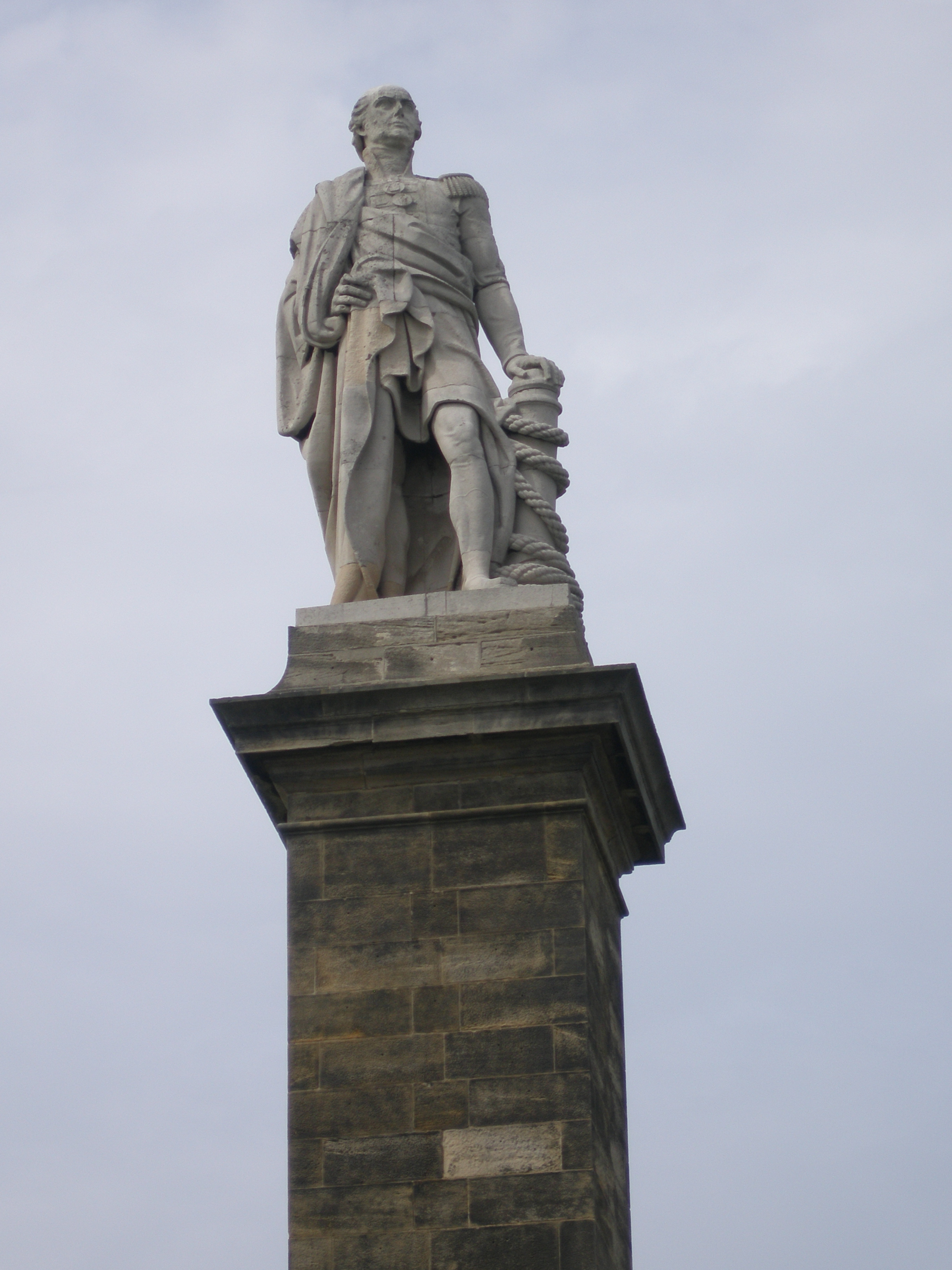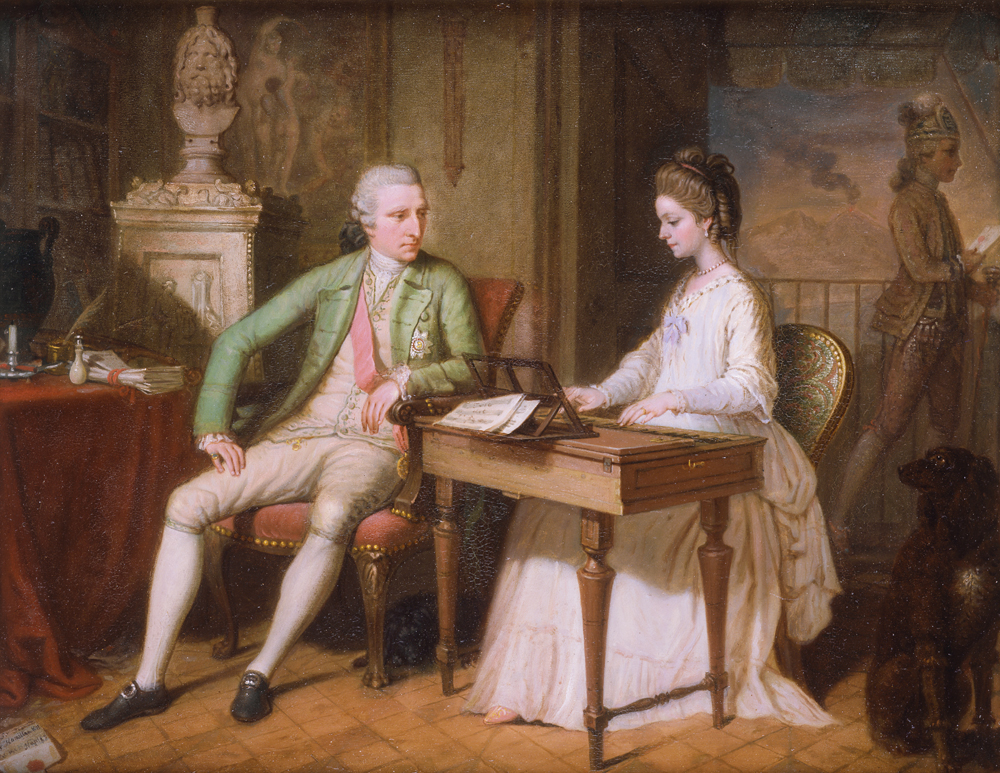|
Oliver Warner
Oliver Martin Wilson Warner (28 February 1903 – 14 August 1976) was a well-known British naval historian and writer. Life and career Warner was born in 1903 and educated at Denstone College and Caius College, Cambridge. In 1926, he succeeded Frank Swinnerton as staff reader at the publishing house of Chatto and Windus. In addition to his work as staff reader he also worked on the company's advertising material. As a young man he made contributions to magazines such as ''The Spectator'' and ''Time and Tide'', some of which were later reproduced in his 1947 book ''Captains and Kings''. In 1939, he published an account of his visit to an "unworldly" relative in Canada, entitled ''Uncle Lawrence''. During the Second World War he joined the Admiralty secretariat, initially serving in the Commission and Warrant (C.W.) branch before serving on the war artists advisory committee. He later served as secretary to the naval honours and awards committee. After the war he became deputy dire ... [...More Info...] [...Related Items...] OR: [Wikipedia] [Google] [Baidu] |
Denstone College
Denstone College is a mixed, independent, boarding and day school in Denstone, Uttoxeter, Staffordshire, England. It is a Woodard School, having been founded by Nathaniel Woodard, and so Christian traditions are practised as part of College life. It is a member of the Headmasters' and Headmistresses' Conference. History Nathaniel Woodard founded the school, originally called St Chad's College, as his flagship school in the Midlands, following earlier foundations in southern England. Work on the school began in 1868 and it opened in 1873 with 46 boys, under the direction of Edward Clarke Lowe, provost of the Midland district of the Woodard Corporation. The buildings were designed by William Slater and Richard Carpenter in the Neo-Gothic style. The school buildings, hall, chapel and war memorial are all Grade II listed. The school's chapel was built in 1879–87 by Carpenter and Benjamin Ingelow in a late 13th-century Gothic style; it consists of a four-bay nave with a po ... [...More Info...] [...Related Items...] OR: [Wikipedia] [Google] [Baidu] |
Royal Navy
The Royal Navy (RN) is the United Kingdom's naval warfare force. Although warships were used by English and Scottish kings from the early medieval period, the first major maritime engagements were fought in the Hundred Years' War against France. The modern Royal Navy traces its origins to the early 16th century; the oldest of the UK's armed services, it is consequently known as the Senior Service. From the middle decades of the 17th century, and through the 18th century, the Royal Navy vied with the Dutch Navy and later with the French Navy for maritime supremacy. From the mid 18th century, it was the world's most powerful navy until the Second World War. The Royal Navy played a key part in establishing and defending the British Empire, and four Imperial fortress colonies and a string of imperial bases and coaling stations secured the Royal Navy's ability to assert naval superiority globally. Owing to this historical prominence, it is common, even among non-Britons, to ref ... [...More Info...] [...Related Items...] OR: [Wikipedia] [Google] [Baidu] |
1903 Births
Nineteen or 19 may refer to: * 19 (number), the natural number following 18 and preceding 20 * one of the years 19 BC, AD 19, 1919, 2019 Films * ''19'' (film), a 2001 Japanese film * ''Nineteen'' (film), a 1987 science fiction film Music * 19 (band), a Japanese pop music duo Albums * ''19'' (Adele album), 2008 * ''19'', a 2003 album by Alsou * ''19'', a 2006 album by Evan Yo * ''19'', a 2018 album by MHD * ''19'', one half of the double album ''63/19'' by Kool A.D. * ''Number Nineteen'', a 1971 album by American jazz pianist Mal Waldron * ''XIX'' (EP), a 2019 EP by 1the9 Songs * "19" (song), a 1985 song by British musician Paul Hardcastle. * "Nineteen", a song by Bad4Good from the 1992 album '' Refugee'' * "Nineteen", a song by Karma to Burn from the 2001 album ''Almost Heathen''. * "Nineteen" (song), a 2007 song by American singer Billy Ray Cyrus. * "Nineteen", a song by Tegan and Sara from the 2007 album '' The Con''. * "XIX" (song), a 2014 song by Slipknot. ... [...More Info...] [...Related Items...] OR: [Wikipedia] [Google] [Baidu] |
Royal National Lifeboat Institution
The Royal National Lifeboat Institution (RNLI) is the largest charity that saves lives at sea around the coasts of the United Kingdom, the Republic of Ireland, the Channel Islands, and the Isle of Man, as well as on some inland waterways. It is one of Independent lifeboats in Britain and Ireland, several lifeboat services operating in the same area. Founded in 1824 as the National Institution for the Preservation of Life from Shipwreck, soon afterwards becoming the Royal National Institution for the Preservation of Life from Shipwreck, under the patronage of King George IV. On 5 October 1854, the institution’s name was changed to its current name (RNLI), and in 1860 was granted a royal charter. The RNLI is a charity in the UK and in the Republic of Ireland and has enjoyed royal patronage since its foundation, the most recent being Elizabeth II of the United Kingdom, Queen Elizabeth II until her death on 8 September 2022. The RNLI is principally funded by Will (law), legacie ... [...More Info...] [...Related Items...] OR: [Wikipedia] [Google] [Baidu] |
Battle Of The Plains Of Abraham
The Battle of the Plains of Abraham, also known as the Battle of Quebec (french: Bataille des Plaines d'Abraham, Première bataille de Québec), was a pivotal battle in the Seven Years' War (referred to as the French and Indian War to describe the North American theatre). The battle, which began on 13 September 1759, was fought on a plateau by the British Army and Royal Navy against the French Army, just outside the walls of Quebec City on land that was originally owned by a farmer named Abraham Martin, hence the name of the battle. The battle involved fewer than 10,000 troops in total, but proved to be a deciding moment in the conflict between France and Britain over the fate of New France, influencing the later creation of Canada. The culmination of a three-month siege by the British, the battle lasted about an hour. British troops commanded by General James Wolfe successfully resisted the column advance of French troops and Canadian militia under General Louis-Joseph, Marq ... [...More Info...] [...Related Items...] OR: [Wikipedia] [Google] [Baidu] |
James Wolfe
James Wolfe (2 January 1727 – 13 September 1759) was a British Army officer known for his training reforms and, as a Major-general (United Kingdom), major general, remembered chiefly for his victory in 1759 over the Kingdom of France, French at the Battle of the Plains of Abraham in Quebec. The son of a distinguished general, Edward Wolfe, he received his first commission at a young age and saw extensive service in Europe during the War of the Austrian Succession. His service in Flanders and in Scotland, where he took part in the suppression of the Jacobite Rebellion (1745), Jacobite Rebellion, brought him to the attention of his superiors. The advancement of his career was halted by the Treaty of Aix-la-Chapelle (1748), Peace Treaty of 1748 and he spent much of the next eight years on garrison duty in the Scottish Highlands. Already a brigade major at the age of 18, he was a lieutenant-colonel by 23. The outbreak of the Seven Years' War in 1756 offered Wolfe fresh opportun ... [...More Info...] [...Related Items...] OR: [Wikipedia] [Google] [Baidu] |
Cuthbert Collingwood, 1st Baron Collingwood
Vice Admiral Cuthbert Collingwood, 1st Baron Collingwood (26 September 1748 – 7 March 1810) was an admiral of the Royal Navy, notable as a partner with Lord Nelson in several of the British victories of the Napoleonic Wars, and frequently as Nelson's successor in commands. Early years Collingwood was born in Newcastle upon Tyne. His early education was at the Royal Grammar School, Newcastle. At the age of 12, he went to sea as a volunteer on board the sixth-rate under the command of his cousin Captain Richard Brathwaite (or Braithwaite), who took charge of his nautical education. After several years of service under Brathwaite and a short period attached to , a guardship at Portsmouth commanded by Captain Robert Roddam, Collingwood sailed to Boston in 1774 with Admiral Samuel Graves on board , where he fought in the British naval brigade at the Battle of Bunker Hill in June 1775, and was afterwards commissioned as a lieutenant on 17 June. In 1777, Collingwood met Horatio N ... [...More Info...] [...Related Items...] OR: [Wikipedia] [Google] [Baidu] |
Carl Gustaf Emil Mannerheim
Baron Carl Gustaf Emil Mannerheim (, ; 4 June 1867 – 27 January 1951) was a Finnish military leader and statesman. He served as the military leader of the Whites in the Finnish Civil War of 1918, as Regent of Finland (1918–1919), as commander-in-chief of Finland's defence forces during the period of World War II (1939–1945), as Marshal of Finland (1942–), and as the sixth president of Finland (1944–1946). The Russian Empire dominated the Grand Duchy of Finland before 1917, and Mannerheim made a career in the Imperial Russian Army, rising by 1917 to the rank of lieutenant general. He had a prominent place in the ceremonies for Emperor Nicholas II's coronation in 1896 and later had several private meetings with the Tsar. After the Bolshevik revolution of November 1917 in Russia, Finland declared its independence (6 December 1917) – but soon became embroiled in the 1918 Finnish Civil War between the pro-Bolshevik "Reds" and the "Whites", who were the troops of the ... [...More Info...] [...Related Items...] OR: [Wikipedia] [Google] [Baidu] |
Andrew Cunningham, 1st Viscount Cunningham Of Hyndhope
Admiral of the Fleet Andrew Browne Cunningham, 1st Viscount Cunningham of Hyndhope, (7 January 1883 – 12 June 1963) was a senior officer of the Royal Navy during the Second World War. He was widely known by his initials, "ABC". Cunningham was born in Rathmines in the south side of Dublin on 7 January 1883. After starting his schooling in Dublin and Edinburgh, he enrolled at Stubbington House School, at the age of ten. He entered the Royal Navy in 1897 as a naval cadet in the officers' training ship ''Britannia'', passing out in 1898. He commanded a destroyer during the First World War and through most of the interwar period. He was awarded the Distinguished Service Order and two Bars, for his performance during this time, specifically for his actions in the Dardanelles and in the Baltics. In the Second World War, as Commander-in-Chief, Mediterranean Fleet, Cunningham led British naval forces to victory in several critical Mediterranean naval battles. These included the ... [...More Info...] [...Related Items...] OR: [Wikipedia] [Google] [Baidu] |
Captain Cook
James Cook (7 November 1728 Old Style date: 27 October – 14 February 1779) was a British explorer, navigator, cartographer, and captain in the British Royal Navy, famous for his three voyages between 1768 and 1779 in the Pacific Ocean and to New Zealand and Australia in particular. He made detailed maps of Newfoundland prior to making three voyages to the Pacific, during which he achieved the first recorded European contact with the eastern coastline of Australia and the Hawaiian Islands, and the first recorded circumnavigation of New Zealand. Cook joined the British merchant navy as a teenager and joined the Royal Navy in 1755. He saw action in the Seven Years' War and subsequently surveyed and mapped much of the entrance to the St. Lawrence River during the siege of Quebec, which brought him to the attention of the Admiralty and the Royal Society. This acclaim came at a crucial moment for the direction of British overseas exploration, and it led to his commission in ... [...More Info...] [...Related Items...] OR: [Wikipedia] [Google] [Baidu] |
The Glorious First Of June
The Glorious First of June (1 June 1794), also known as the Fourth Battle of Ushant, (known in France as the or ) was the first and largest fleet action of the naval conflict between the Kingdom of Great Britain and the First French Republic during the French Revolutionary Wars. The action was the culmination of a campaign that had criss-crossed the Bay of Biscay over the previous month in which both sides had captured numerous merchant ships and minor warships and had engaged in two partial, but inconclusive, fleet actions. The British Channel Fleet under Admiral Lord Howe attempted to prevent the passage of a vital French grain convoy from the United States, which was protected by the French Atlantic Fleet, commanded by Rear-Admiral Villaret-Joyeuse. The two forces clashed in the Atlantic Ocean, some west of the French island of Ushant on 1 June 1794. During the battle, Howe defied naval convention by ordering his fleet to turn towards the French and for each of his ve ... [...More Info...] [...Related Items...] OR: [Wikipedia] [Google] [Baidu] |
William Hamilton (diplomat)
Sir William Hamilton, (13 December 1730 – 6 April 1803), was a British diplomat, antiquarian, archaeologist and vulcanologist. After a short period as a Member of Parliament, he served as British Ambassador to the Kingdom of Naples from 1764 to 1800. He studied the volcanoes Vesuvius and Etna, becoming a Fellow of the Royal Society and recipient of the Copley Medal. His second wife was Emma Hamilton, famed as Horatio Nelson's mistress. Early life and career Hamilton was born on 13 December 1730 (or 12 January 1731) in either London or at Park Place, Berkshire, the fourth son of Lord Archibald Hamilton, governor of Jamaica, seventh son of William Douglas-Hamilton, Earl of Selkirk, by the 3rd Duchess of Hamilton, and Lady Jane Hamilton, daughter of James Hamilton, 6th Earl of Abercorn.Constantine 2001: 1–2. His mother was a favourite, and possibly a mistress, of the Prince of Wales and William grew up with his son George III, who would call him his "foster brother". At age n ... [...More Info...] [...Related Items...] OR: [Wikipedia] [Google] [Baidu] |








